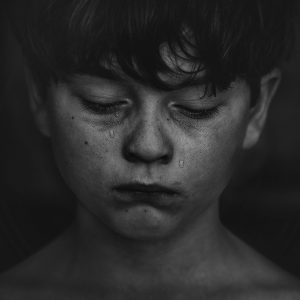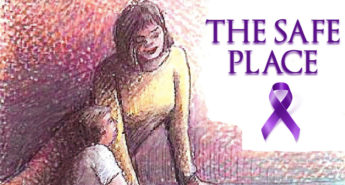 According to the Center for Disease Control, 1 in 4 women and 1 in 7 men will experience severe physical violence by an intimate partner in their lifetime. CDC also found that almost half of women in the US will experience psychological aggression by an intimate partner in their life. Domestic Violence is all too familiar in the US, and the effects of DV on the people who experience it are devastating. This can be even worse for children who witness or endure abuse in the household.
According to the Center for Disease Control, 1 in 4 women and 1 in 7 men will experience severe physical violence by an intimate partner in their lifetime. CDC also found that almost half of women in the US will experience psychological aggression by an intimate partner in their life. Domestic Violence is all too familiar in the US, and the effects of DV on the people who experience it are devastating. This can be even worse for children who witness or endure abuse in the household.
Children who grow up witnessing abuse, whether directly or indirectly, have difficulty developing properly, feel ashamed or guilty because of the abuse, and often grow up to think violence is okay and the answer to conflict resolution. Moreover, according to a study conducted by the University of Toronto, these children are more likely to become dependent on drugs and alcohol. Their findings show that 1 in 5 drug-dependent adults and 1 in 6 alcohol-dependent adults suffered from childhood abuse. In addition, the American Society for the Positive Care of Children found that more than one third of adolescents with a report of abuse or neglect will have a substance abuse disorder by the time they are 18. This is three times higher than children without a report of abuse. The University of Toronto found that the reason children who observed or endured abuse use drugs and alcohol more is because they turn to them as a means of coping with what they endured. Something as simple as seeing the effects of domestic violence (blood, bruises, torn clothes, etc.) can trigger the emotions and make the child want to turn to drugs and alcohol to feel better.
Brian Martin, creator of Childhood Domestic Violence Association, says the best way to break the cycle of DV and in turn drug and alcohol dependency is to:
- Start a conversation. Even if you think the child didn’t hear or see anything, they probably did. Talk to them about it.
- Reassure them that it is not their fault and there was nothing they could have done to change or stop anything.
- Dispel the lies. These children will often think they deserve what they get and life cannot get better. Let them know this isn’t the case and it will get easier. Help them cope with what happened.
If anyone you know is a victim of domestic violence please have them call The Safe Place Crisis Line at 1-888-554-2501 and if anyone you know is struggling with drug and alcohol abuse please call the Substance Abuse and Mental Health Services Administration (SAMHSA) at 1-800-662-4357.




Leave a Reply